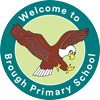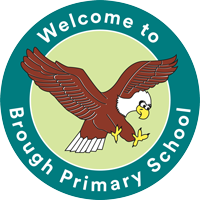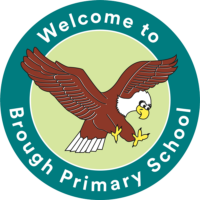Welcome to The Bridge
The Bridge is the Enhanced Resource Provision based within Brough Primary School and we support children with a range of Social Emotional and Mental Health Needs (SEMH). We tailor our curriculum to meet individual needs, supporting both academic learning and social and emotional development. We work closely with children and families to develop positive relationships in a warm and nurturing environment whilst simultaneously providing stimulating educational opportunities that are closely matched to each child’s ability, rather than their age. This allows for specialist and targeted support and provision to be delivered in order to meet the child’s individual needs. We provide a nurturing environment that is safe and secure with a home like atmosphere. Our aim is to help children have healthy relationships, to build self-esteem and to reach their full learning potential. In The Bridge, the children have access to specialist equipment, resources and skilled staff but also have access to the benefits of being in a mainstream school. The Bridge is not separate from the rest of the school. The Bridge children are an integral part of our school and will have access to the facilities and opportunities that this provides. Children will access the parts of mainstream school, which staff feel that they would benefit from e.g, assemblies, PE lessons, Maths lessons or topic lessons.
What will my child learn?
The Bridge works on an individual approach to meet the needs of each child. Our curriculum incorporates all aspects of the EYFS, KS1 and KS2 National Curriculum, however we focus on targeting the content which is most appropriate for the child’s developmental stage rather than their age. We also plan our activities to ensure that children with Education, Health and Care Plans and Termly Support Plans are given regular opportunities to work on and progress towards their individual outcomes within their daily routine.
Whilst we assess the children’s academic progress against the relevant criteria in the National Curriculum/ B Squared Connecting Steps, we also use the Boxall Profile as a tool to assess and measure progress in social and emotional functioning. In addition, the activities we complete each day incorporate vital social skills and self-regulation strategies to aid children in their personal development.
Our learning environment aims to be a home from home setting which is warm and inviting, making all feel welcome. The different areas within the setting allow us to have a more formal classroom area, an on-going provision area, an outdoor provision area, a sensory room and a quiet calming space for time away from the main group.
Our timetable is highly predictable and structured to provide stability and is visually displayed for children to refer to throughout the day. Our activities are planned to allow children to access all areas of the building at some point each day and are short with regular movement breaks planned in. We offer a range of sensory opportunities to support learning and development, use the outdoors as part of our daily timetable and meet as a group to celebrate, reflect and have an emotional check in.
All children who spend time at The Bridge are part of a class in the main school and the amount of time they spend in each setting varies according to their specific needs.
What does a typical day look like?
Morning
Check in and timetable Sensory time
Session 1 – English based activities
Session 2 – Toast and Talk time
Morning break
Session 3 – Maths based activities
Session 4 – Personal Social and Emotional time / Sensory room
Lunch- Canteen or Bridge
Lunch- Playtime
The Afternoon
Exploring real hands-on activities provides opportunity for children to form ideas and make sense of the world. More practical-based sessions take place in The Bridge in the afternoons; these are beneficial for promoting high wellbeing and take form in many ways, including: practicing mindfulness and relaxation, yoga, baking, art, gardening.
How do I apply for a place for my child in The Bridge?
The Enhanced Resource Provision (ERP) is part of the main school. However, children are placed in The Bridge by the Local Authority in consultation with parents and professionals, including staff at their current educational placement, any outside agencies involved with the child and the ERP staff. Usually, this will be discussed within an Annual or Interim review meeting and then agreed by the SEND panel. The school then work alongside parents/carers and the Local Authority to ensure a child’s needs can be best met within The Bridge. Transition for each child is carefully planned and managed depending on his/her individual needs.
The Bridge has 8 Local Authority agreed places for children with SEMH needs. We are unable to accept direct requests for placements for the ERP from parents or carers.
Who are the adults in the Enhanced Resource Base?
The member of the Senior Leadership Team responsible for The Bridge is Mrs. Rozenbroek (Assistant Headteacher/ SENCO). Mrs Rozenbroek teaches in The Bridge one afternoon a week. Mrs. Campbell is the lead teacher in The Bridge.
Mrs Campbell (Teacher)
Mrs Rasdale (Speech and Language trained TA)
Mrs Lazenby (TA)
Miss Kirby (TA)
Mrs Burton (TA)
Mr Aldridge (TA)
Mr Fewster (TA)
Each child is also allocated to a mainstream class in school. They have a class teacher in mainstream as well as the staff in The Bridge to support them. The Bridge team work closely with each child’s mainstream class teacher to plan work appropriate to their needs and development, rather than their age to allow them to access mainstream provision where appropriate.
Our Learning Environment








